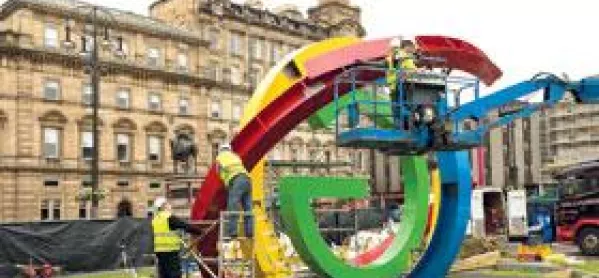The Glasgow Commonwealth Games are yet to begin but the huge sporting event has already helped thousands of young people to take their first steps into the job market.
More than 4,000 school-leavers and graduates in Glasgow alone have been placed in jobs, training and apprenticeships as part of the legacy of the Games, which start on Wednesday.
Of these, 3,100 were school-leavers who secured Modern Apprenticeships under the city council’s Commonwealth Apprenticeship Initiative.
A total of 240 young people found work through the Commonwealth Youth Fund, which offers financial incentives to encourage companies to take on an unemployed person under the age of 20.
Those struggling to find jobs after university have also benefited - with 570 gaining employment through the council’s pound;10 million Commonwealth Graduate Fund, which pays employers to create graduate jobs in the city.
But despite the excitement surrounding employment opportunities, research in recent years has shown that establishing a legacy for a large sporting event is notoriously difficult. Attempting to buck this trend has been a major challenge for the organisers of Glasgow 2014.
A Scottish government report published in April stresses that while the Games have provided employment opportunities across a number of sectors, these are, in many cases, short term, and that this is “viewed both positively and negatively”.
Concerns centre around the temporary and often low-paid nature of the placements. The report also notes that there is “very limited evidence on the value and effectiveness of learning and educational activities around major events, as they tend not to be fully evaluated”.
The run-up to the Games has not been without controversy, with concerns over ticketing systems and transport. Plans to demolish the famous Red Road flats in Glasgow as part of the opening ceremony were dropped after a public outcry.
Maureen McKenna, executive director of education for Glasgow City Council, said: “This has been a fantastic opportunity for the young people and I’m delighted they have secured positive destinations.”
Council leader Gordon Matheson added: “The Games presented us with a unique, once-in-a-lifetime chance to move the city forward.
“We were determined that the city would make the most of this opportunity, and the latest figures show that the council’s legacy plans for the Games have already delivered real change for Glasgow.”
Nor are the opportunities created around Glasgow 2014 restricted to the host city. Only two weeks ago, the government announced that the Legacy 2014 Young Persons’ Fund, run by Skills Development Scotland (SDS), had reached the milestone of supporting 1,000 young people into Modern Apprenticeships around Scotland.
The organisation has used its Employer Recruitment Incentive scheme to target businesses with fewer than 150 employees that are willing to take on an apprentice carrying out work ideally linked to a sporting or cultural event in Scotland.
The areas the programme covers include hospitality, retail, and achieving excellence in sports or youth work. In total, SDS aims to have at least 1,500 apprentices in place by the end of March 2015.
Training, youth and women’s employment minister Angela Constance said: “The opportunities the Games have afforded these young people will help them develop their skills and set them up for successful future careers.”
According to Glasgow City Council, the approaching Games have also encouraged young people to volunteer by running sports clubs. More than 1,300 have received Sport Leadership Awards in 2013-14, compared with 250 in 2009-10.




